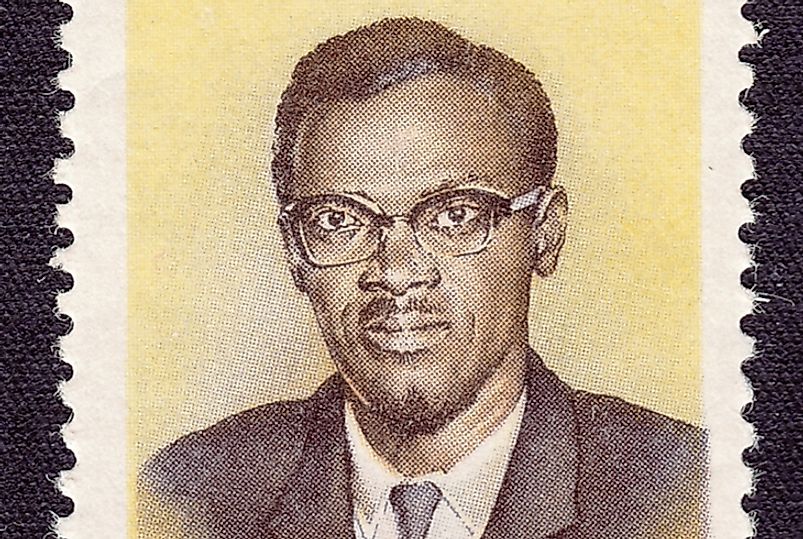Who Was The First Prime Minister Of The Democratic Republic Of The Congo?

Patrice Lumumba was a politician, freedom fighter, and nationalist who became the Democratic Republic of the Congo's first prime minister after a democratic election. Lumumba founded the Mouvement National Congoilais (MNC), a party that was at the forefront in the fight for independence from Belgian colonialism. Immediately after independence in 1960, a conflict among army officials led to a mutiny and consequently to what was termed the Congo Crisis.
Early Life
Lumumba was born to François Otetshima and Julienne Wamato on July 2, 1925. He studies at a Protestant primary before joining a government-sponsored post-training school where he passed with distinction. After completing his studies, Lumumba worked as a beer salesperson and a postal clerk. Later he became the editor for the Liberal Party of Belgium, a party he had just joined. Upon his return in 1956 from a study-tour in Belgium, Lumumba was charged with embezzlement of resources from the Post Office. He was found guilty and incarcerated for one year. Upon his release, he became considerably more involved in politics.
Political Career
On October 5, 1958, Lumumba founded the MNC (Mouvement National Congolais) Party and became the party leader. He led the party towards a reduction in foreign interference and indigenization of the government. Lumumba had the upper hand in rallying people for a political cause due to his charisma, good oratorical skills, and better ideologies than his opponents.
In 1958, Lumumba was among African leaders who converged at the conference for African people in Accra, Ghana. During the meeting, Nkrumah (then president of Ghana) acknowledged the ability and the intelligence of Lumumba. In October 1959, Lumumba was arrested by the colonial government in Congo on an allegation of incitement. He was subjected to a harsh trial and incarcerated later the same year. However, due to pressure from his party, Lumumba was released and permitted to be among the attendance of a conference in Brussels looking at post-independence political change in the country.
On June 30, 1960, an Independence Day celebration was held, and various dignitaries spoke including the then-king of Belgium, Baudouin. The king’s speech lauded the achievement made during the Belgian rule, something that did not go well with Lumumba. Lumumba gave an unpremeditated speech reminding the Congolese people that they shed blood during the fight for independence, saying: “for this independence of the Congo […] we gave our strength and blood. We are proud of this struggle, of tears, and of blood…” As a prime minister, Lumumba increased the wages for employees working for the government except for the military officers. This exception led to a mutiny that gradually worsened, known as the Congo Crisis.
The Congo Crisis
Prime minister Lumumba and then-president Joseph Kasa-Vubu were forced to partner up since neither succeeded in forming a parliamentary coalition, but the unstable partnership soon crumbled. Belgian forces reentered the country, claiming they intended to defend Belgian nationals in the country but actually hoping to take advantage of the political turmoil. Both the United Nations and the United States of America declined Lumumba’s request for help, which forced Lumumba to seek assistance from the Soviet Union. This angered the US, then caught in a Cold War with the USSR, and the former intervened in the Congo Crisis with the goal of removing Lumumba and replacing him with a pro-Western, anti-communist leader. With US support, army Chief of Staff Joseph Mobutu staged a coup d'état and captured Lumumba. The country's first prime minister was killed by a firing squad, and Mobutu ruled DR Congo for 32 years.
United Nations' Response
Dag Hammarskjold, then the secretary-general of the UN, requested President Kasa-Vubu to treat Lumumba according to legal procedures. This appeal was not enough to secure Lumumba’s freedom. The Soviet government accused Hammarskjold of reluctance and demanded Lumumba’s release. The move by the Soviet Union led to a UN Security Council meeting on December 7, 1960, to consider various demands made by the Soviet Union: the release of Lumumba, his restoration to power, and disarmament of Mobutu’s forces. After a long deliberation, the Soviet claims were put to rest by an 8-2 vote on December 14, 1960. Lumumba was then executed alongside Joseph Okito, and Maurice Mpolo by the Mobutu's firing squad later that year.







